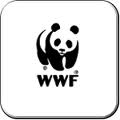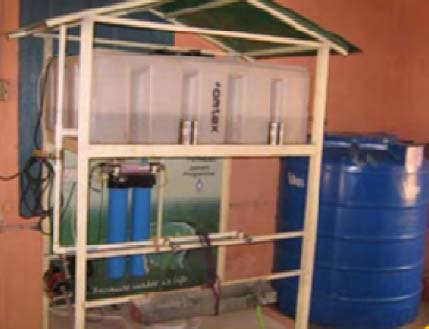Sustainability
"Meeting urban water challenges is matter of political will and priorities, not about technical solutions"
Posted on 17 Sep, 2011 08:55 AMGuest post by: Parineeta Dandekar
This year's World Water Week in Stockholm explored water and sanitation challenges faced by urban areas as well as the water, sanitation and equity challenges posed by urban areas. We take a look at some of the presentations and discussions that took place, especially with reference to India and South Asia.
Symposium on sustainable water development, DHAN Foundation, September 14-18, 2011 at Madurai
Posted on 14 Sep, 2011 08:56 AMOrganizer: DHAN Foundation
Date: September 14-18, 2011
Venue: Madurai

Development of Humane Action (DHAN) Foundation, a professional development organisation, based at Madurai was set up in 1997 with the idea of building people and institutions for development innovations and scaling up to enable the poor communities for poverty reduction and self-reliance.
It brings highly motivated, educated young women and men to the development sector to make new innovations in development to root out poverty from the country. The Foundation works to make significant changes in the livelihoods of the poor through innovative themes and institutions.
Water and sanitation challenges and the urban poor - Report of the consultation workshop held in December 2010 by India Wash Forum
Posted on 11 Sep, 2011 02:03 PM
On December 22, 2010, India WASH Forum organised a one day consultation workshop on pro poor urban water and sanitation at India Habitat Centre, New Delhi. India WASH Forum is a coalition bringing together interested stakeholders in the water and sanitation sector in the country.
Frequently asked questions (FAQ) on Groundwater - Understanding the basics
Posted on 08 Sep, 2011 04:56 PMA comprehensive FAQ Manual on Groundwater authored by Dr Mihir Kumar Maitra narrows down the existing knowledge gaps amongst the common groundwater users.
The most popular FAQs are listed below. Please click on a topic to view more detailed information:
Basic information on groundwater

WWF invites applications for the post of Coordinator, Living Ganga Programme, Kanpur – Apply by September 20, 2011
Posted on 05 Sep, 2011 05:29 PMContent courtesy: DevNetJobsIndia

World Wildlife Fund-India (WWF-India) has been working towards conservation and wise management of river systems and wetlands in India for over a decade now. The areas of intervention have been freshwater ecosystems, connected habitats, freshwater species and balanced use of water resources for livelihoods.
Decentralized wastewater management – An overview of a community initiatives in New Delhi - Vigyan Vijay Foundation
Posted on 05 Sep, 2011 11:40 AMThis paper by Ajit Seshadri, Vigyan Vijay Foundation highlights the poor sanitation situation in India and argues that centralized approaches to wastewater treatment have had limited success and there is a need to make wastwater treatment people centric and effective through the use of decentralized systems such as DEWATS (Decentralized Wastewater Treatment Systems). DEWATS are locally organized and people driven systems that typically comprise a settler, anaerobic baffled tanks, filter beds of gravel and sand, and an open pond. The open pond or the polishing tank recreates a living environment for the wastewater to clean itself, naturally.
Forecasting agricultural output using space, agrometeorology and land based observations
Posted on 03 Sep, 2011 06:29 PMThis document presents the proceedings of the annual review meeting by India Meteorological Department (IMD) on “Forecasting Agricultural Output Using Space, Agrometeorology and Land Based Observations” (FASAL) organized at YASHADA, Pune during 1-2 August 2011.
Assessment of Jalamani programme on stand alone water purification systems in rural India - A report by Centre for Media Studies
Posted on 03 Sep, 2011 04:50 PM This report by the Centre for Media Studies, New Delhi presents an assessment of the Jalamani programme of the Department of Drinking Water Supply, Government of India. The centrally sponsored programme commenced in 2008-09 aimed at installing simple Stand Alone Water Purification Systems (SAWPS) in rural schools to enable school children to have access to safe and clean water. The focus was on tackling bacteriological contamination and turbidity in ongoing rural drinking water supply programme.
This report by the Centre for Media Studies, New Delhi presents an assessment of the Jalamani programme of the Department of Drinking Water Supply, Government of India. The centrally sponsored programme commenced in 2008-09 aimed at installing simple Stand Alone Water Purification Systems (SAWPS) in rural schools to enable school children to have access to safe and clean water. The focus was on tackling bacteriological contamination and turbidity in ongoing rural drinking water supply programme.
The assessment study used both qualitative and quantitative techniques such as focus group discussions and in-depth interviews besides structured questionnaire for a variety of stakeholders and research questions. Another important aspect of the quantitative tools was testing of the raw and treated water samples. The study was undertaken in 320 schools spread across 20 districts and six states.
Faster, sustainable and more inclusive growth – An approach to the twelfth five year plan – Draft report by Planning Commission
Posted on 03 Sep, 2011 09:28 AMThis draft report by the Planning Commission, which presents an approach to the twelfth five year plan among other things outlines some of the challenges related to agriculture, natural resources management and water resources management.
Tribal movements and livelihoods – Recent developments in Orissa – A working paper by CPRC-IIPA
Posted on 31 Aug, 2011 08:48 PMFor the last few decades and more particularly since 1990’s the issue of human rights-violation of rights to life and livelihood of tribal peoples’ is a central concern. Therefore, the discourse on tribal movements and issues of tribal livelihood revolved around securing their well-defined rights on land and forest resources.





